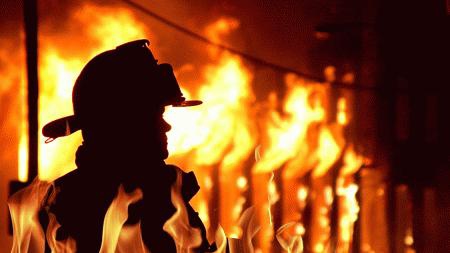Most California arson charges involve setting a fire deliberately in order to cause harm to someone else’s property or for an illegal purpose (such as insurance fraud). The target of arson can be a structure (like a home or commercial building), personal property (like a car), or forestland (including woods, brush, and grassland).
While people usually think of arson in connection with buildings, many arson charges in California result from fires in forestlands. According to the California Department of Forestry and Fire Protection, one out of every five wildfires is set deliberately.
Penalties for the crime of arson are more serious if the fire results in injury, death, or substantial damage. Because fires have the potential to spread, placing lives and property at risk, any accusation of arson is taken very seriously by prosecutors and law enforcement agencies in Southern California.
Whether you are charged with setting fire to property in Los Angeles, San Diego, Orange County, or any other California location, you need an experienced criminal defense attorney on your side. The Law Offices of Randy Collins provides aggressive and experienced defense of arson charges in all Southern California courts.
Call (888) 250-2865 to make an appointment for an evaluation of your arson charges.
California Arson Charges
Simple arson
Section 451 of the California Penal Code defines the basic crime of arson, sometimes known as “simple arson.” To obtain an arson conviction under that section, the prosecution must prove beyond a reasonable doubt that the accused:
- set fire to or caused the burning of a structure, property, or forestland (or helped someone else do so), and
- acted willfully (rather than accidentally), and
- acted maliciously.
As the term in used in California’s arson statutes, “maliciously” means with the intent to do a wrongful act or to defraud, annoy, or injure someone else.
Simple arson is a felony. The maximum sentence depends upon whether the arson:
- caused great bodily injury (9 year maximum);
- involved an inhabited structure (8 year maximum);
- involved an uninhabited structure or forest land (6 year maximum);
- involved personal property (3 year maximum).
The maximum penalty can be increased under several circumstances, including prior arson convictions, multiple injury victims, injury to firefighters or law enforcement officers, multiple structures damaged by the same fire, and the use of a device designed to accelerate the fire or delay ignition.
Aggravated arson
Aggravated arson, in violation of section 451.5 PC, is committed when a fire is set deliberately and with premeditation and when the fire causes an injury or creates the likelihood of an injury, provided that one of the following is also true:
- the person who set the fire has a previous arson conviction within the last 10 years;
- the fire caused property damage in excess of $7 million;
- the fire damaged five or more inhabited structures.
The penalty for aggravated arson is imprisonment for 10 years to life.
Unlawfully causing a fire
The crime of unlawfully causing a fire is defined by section 452 PC. The crime differs from arson in that the fire does not need to be set willfully. Reckless conduct that results in a fire is a violation of 452 PC. A person acts recklessly by ignoring the substantial and unjustified risk of starting a fire when the conduct grossly departs from reasonable behavior.
Unlawfully causing a fire can be charged as either a felony or a misdemeanor if the fire damages a structure or forestlands or if it causes great bodily injury. Otherwise, the crime is a misdemeanor. The sentencing enhancements that apply to arson also apply to unlawfully causing a fire.
Arson Defense Strategies
If the charge involves personal property, the defendant’s sole ownership of the property (or acting with the permission of all other owners) is a defense unless the fire was started with the intent to defraud or the fire caused injury to another person or other property. Whether the accused had an intent to defraud is often difficult for the prosecution to prove beyond a reasonable doubt.
It can also be challenging for a prosecutor to prove that a defendant acted willfully or maliciously. In the case of wildfires, a defense can often be based on the prosecution’s failure to prove that the defendant acted willfully rather than carelessly. Fires involving personal property and structures can also be defended on the theory that the fire was set accidentally or was not intended to advance an illegal purpose.
Reasonable doubt concerning the identity of the person who started the fire can also be a defense to arson. Other defenses might be available, depending upon the facts of the case.
Whether the accused acted recklessly is typically the focus of the defense to a charge of unlawfully causing a fire. The difference between careless and reckless conduct is often vague. Exploiting that ambiguity can lead to a “not guilty” verdict.
Attorney Assistance
Arson charges can lead to disastrous consequences. To avoid a conviction or otherwise minimize the damage to your life, you need an experienced arson defense lawyer who understands the multiple defenses that can be raised to arson accusations.
Randy Collins is recognized by peers, judges, and lawyer rating services as a superb criminal defense attorney. He defends arson charges in Los Angeles, San Diego, Orange and Riverside Counties, and in all other Southern California courts. Ask for an evaluation of your arson charges by calling the Law Offices of Randy Collins at (844) 285-9559.

